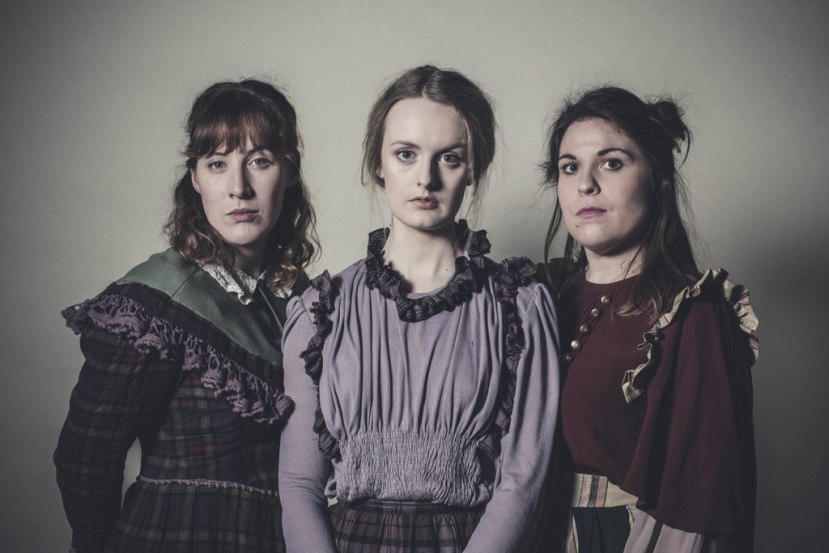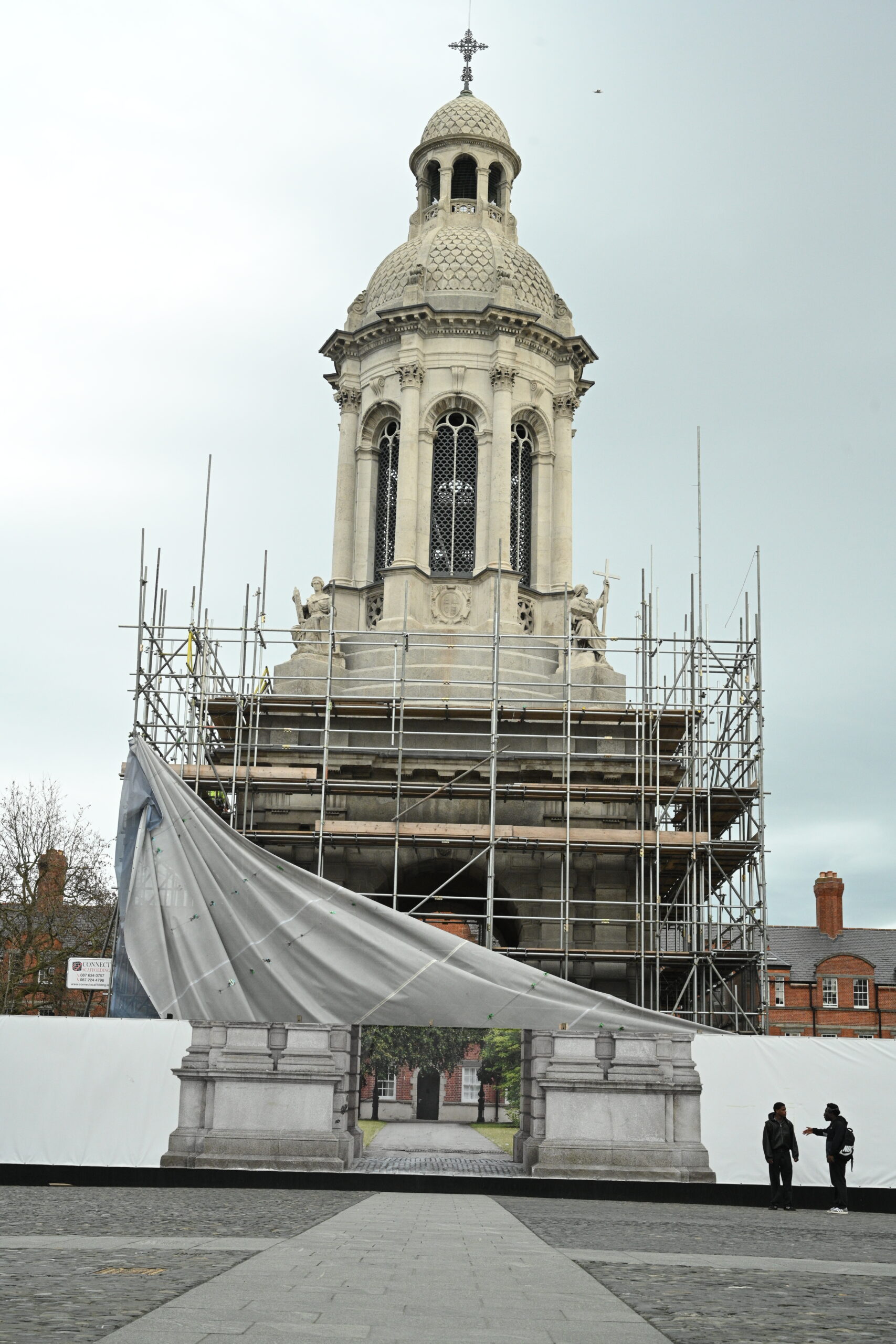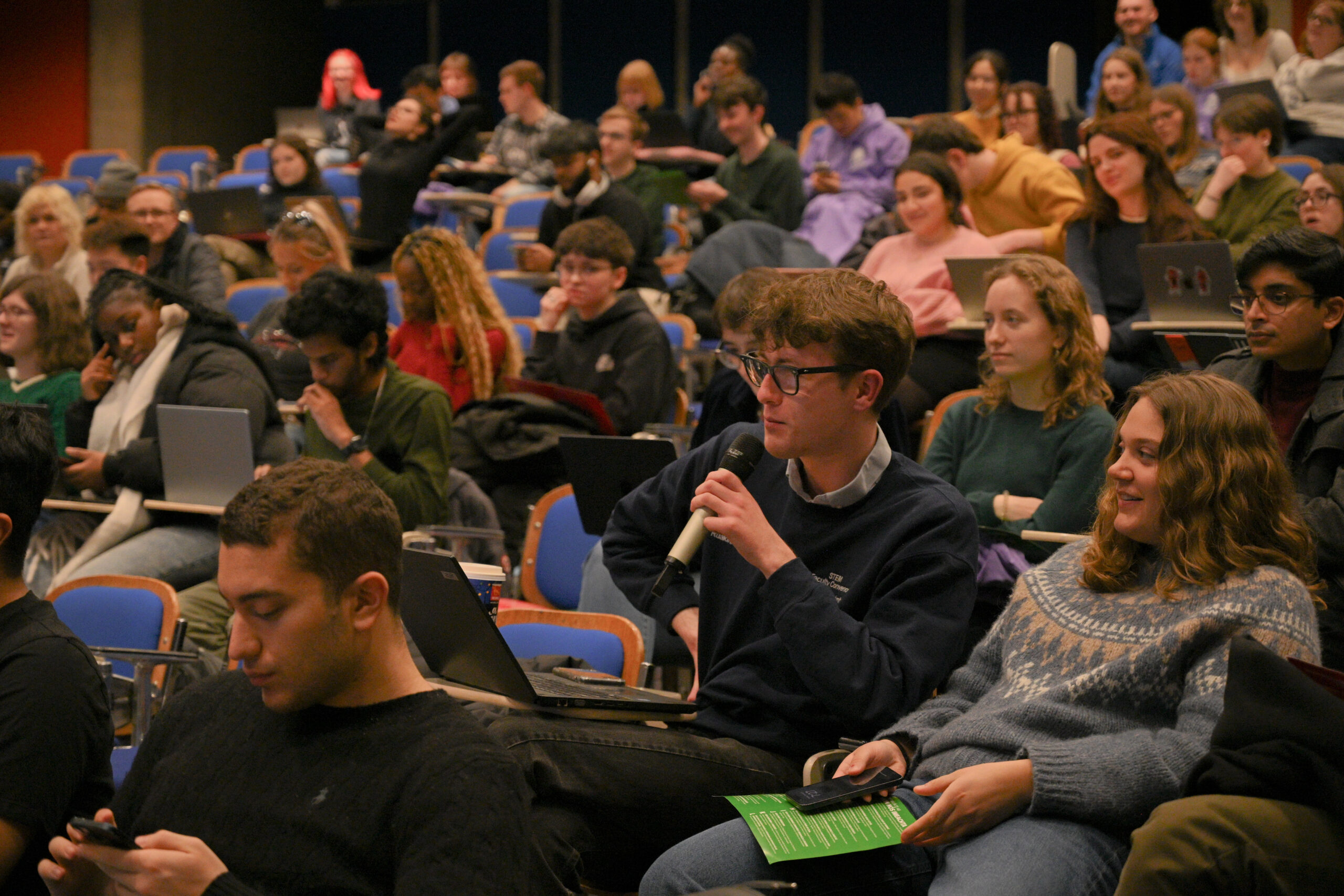
There is always an issue to be found in plays that reflect the lives of iconic figures, as they blur the lines between fact, dramatic heightened additions of fiction and the occasional element of wish fulfilment. In Brontë, this conflict is amplified by the analysis of three of the most influential writers of the 19th century and their characters, especially for someone coming from an English literature background who has studied and enjoyed these works for years. Though I entered the Boys School space in Smock Alley Theatre armed with these trepidations, I found that they were, for the most part, spirited away by this enthralling production
The ability of art to spring from chaos is always something that has surprised and fascinated me and Brontë‘s production team had a tough challenge ahead of it to showcase how this manifested. The frenetic energy that begins Polly Teale’s play, with jumps in time to different positions in the characters’ lives, is at times a little jarring, but the pace does settle to something a little more accessible. At the centre of the play sit the Brontë sisters themselves, but their brother Branwell takes a more active role, acting as catalyst for much of the fraying ties between the family. His descent into a pit of addiction and mental breakdown is quite harrowing to watch and perhaps little excessive and extreme at points.
The interactions between Anne, Emily and Charlotte feel intimate and raw but as the characters from their novels come to haunt them, that connection at times feels lacking. The doubling of parts is an all too present reminder of the writers’ competitiveness, even if it is not so specifically seen through the text. Louise O’ Meara’s Charlotte was a deftly acted standout, especially in her final moments of the play in which she remains the survivor of the tense family drama. Though she is seen as quite a mature matriarch as the oldest Brontë, her isolation is also played delicately and tenderly.
The set is simple yet reflective of the loneliness of the English moors and ends up being a smart choice. The arches overlooking the stage speak volumes themselves as spaces of solitude and natural power. The costuming is, thankfully, not overplayed in its period details though some character changes could have used with more differentiation. Overall the creative team’s efforts fit cohesively with Clare Maguire’s vision of success and pressure, not particularly overshadowing any other as the sisters oft do to each other.
Although the play may sound alienating to those who are not already fans of the Brontë’s work, it still contains necessary explanation to newcomers of the literary giants and their live. Illustrated Productions’s adaptation is faithful to its vision of taking works that spark the audience’s imagination through powerful texts that can gain another dimension of intrigue through interrogating visual aesthetics. Even if it may take a while to find its feet, Brontë proves to be a worthwhile experience for the literary, theatrical enthusiast or just those curious about the complexities of the human condition.
Brontë is running until March 11th in Smock Alley Theatre at 7.20pm. Tickets are €15 or €12 concession.






